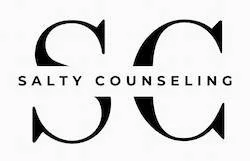
Stress and Burnout
Stress and Burnout Recovery in Salt Lake City
You don’t have to keep running on empty.
It’s possible to recover, reconnect, and reclaim your energy—one step at a time.
You’ve been pushing through—ignoring the exhaustion, silencing the irritability, and telling yourself to just keep going. But deep down, you know something isn’t right. No amount of rest seems to bring relief.
Maybe you’ve caught yourself snapping at loved ones, falling behind at work, or just going through the motions. Even the activities you once loved now feel like obligations. And still—you feel guilty for wanting a break.
You’re not failing. You’re burned out. And it’s not your fault.
Burnout happens when the weight of responsibilities pushes you past your limits. The good news? Healing is possible. Therapy can help you recover, reconnect, and learn to care for yourself—without fear or shame.
Stress Management
“While working with Q, I finally understood my nervous system and why I couldn’t break free from constant stress and anxiety. I learned practical skills to manage both, and my overall well-being has improved. Today, I feel more grounded, calmer, and more in control of my life.”
-C.T.
Why Burnout Happens
Burnout isn’t a sign of weakness—it’s a survival response.
When your mind and body are asked to give more than they have to offer, they eventually begin to shut down.
Modern life creates the perfect storm for chronic stress:
Relentless work deadlines and long hours that keep you in overdrive
The invisible labor of caregiving for children, family, or loved ones
Cultural pressure to “have it all together” without space to rest or reset
For high-achievers, perfectionists, and deeply empathetic people, these challenges hit even harder. Years of pushing through, prioritizing others, and ignoring your own limits can leave you running on empty.
“Burnout isn’t about being weak. It’s about being human in systems that aren’t sustainable.”
Signs You May Be Experiencing Burnout
Burnout doesn’t usually hit all at once. It creeps in slowly—small signs at first, until one day you realize you don’t feel like yourself anymore.
You may notice:
In your energy
Exhaustion that doesn’t improve, no matter how much you rest
Brain fog—trouble focusing, making decisions, or remembering simple things
In your emotions
Irritability, anxiety, or emotional numbness that makes daily life feel overwhelming
Loss of motivation—feeling detached, cynical, or like you’re just “going through the motions”
In your body
Headaches, muscle tension, or digestive issues
In your behavior
Withdrawal or avoidance—procrastination, isolating, or fantasizing about quitting everything
These are not character flaws. They’re your nervous system signaling it’s time for change.
In fact, research shows nearly 77% of people experience burnout at some point in their life—and it’s not limited to work. Parenting, caregiving, and even relationship stress can leave you just as depleted.
Why Burnout Therapy Works
You’ve probably tried it all — weekends off, meditation apps, workouts, even spa days — yet the exhaustion always returns. That’s because burnout isn’t solved by more rest or “trying harder” at self-care.
Self-care can soothe symptoms, but burnout runs deeper. It’s fueled by unprocessed stress, perfectionist patterns, and a nervous system stuck in survival mode. Bubble baths and yoga classes can help—but they can’t retrain your system to heal.
Burnout therapy goes to the root. Together, we’ll:
Uncover the hidden pressures driving you to overwork and over-give
Build boundaries that stick, so you can protect your time and energy without guilt
Retrain your nervous system to shift out of fight-or-flight and into grounded calm
This isn’t about adding more to your to-do list. It’s about rewiring from the inside out so you can finally rest, recharge, and feel whole again.
How I Support Clients Struggling With Burnout
If you’ve tried time off, meditation apps, exercise, or even spa days—and nothing sticks—you’re not alone. That’s because burnout isn’t solved by quick fixes. It’s about learning to prioritize yourself in a way you may have never been taught.
Burnout Recovery helps you:
Prioritize true self-care instead of pushing through until you crash
Build boundaries that protect your time and energy without the guilt
Get to the root of perfectionism, so you’re no longer driven by “I’m only worthy when I achieve”
This isn’t about doing more. It’s about gently unlearning the roles that keep you stuck in overdrive and creating new ways of living—ones that honor your needs, your body, and your limits.
Because rest isn’t earned. It’s necessary.
My Approach to Burnout Recovery
I use a holistic, trauma-informed approach that supports both mind and body. Burnout isn’t just mental—it lives in your nervous system and your physical body too.
Here’s how we might work together:
EMDR Therapy / Parts Work → Address unresolved trauma or inner conflicts fueling overwork and self-neglect.
Mindfulness & Somatic Techniques → Regulate your nervous system and release stress stored in the body.
Boundaries & Communication Skills → Protect your energy and relationships without guilt.
Values-Based Reflection → Clarify what truly matters—beyond external pressures or expectations.
Sessions are collaborative and paced with care. Whether you’re in crisis or noticing the early signs of burnout, we’ll move forward at a rhythm that feels sustainable.
Why I Do This Work
I know burnout because I’ve lived it. I’ve felt the bone-deep exhaustion, the disconnection from joy, and the frustration of trying to “push through” when my body and mind were saying no.
I also know what’s possible on the other side. I’ve watched clients reclaim their energy, rediscover passions, and reconnect with themselves. That transformation is what inspires me every day.
This isn’t just my work—it’s my calling.
Common Questions About Burnout Therapy
What if I don’t have time for therapy?
Burnout often convinces us we don’t. But even 50 minutes a week, or every other week, can make a difference.
I feel like I should be able to manage this on my own.
You’re not weak for needing support. Burnout thrives in isolation. Therapy isn’t about fixing you—it’s about helping you heal and create sustainable ways to care for yourself.
How do I know if I’m burned out or just tired?
If rest alone isn’t helping—and you feel emotionally detached, hopeless, or physically unwell despite slowing down—therapy can help uncover what’s really going on and guide you toward healing.
The Path to Healing
Recovering from burnout isn’t about pushing harder or “doing more” self-care. True recovery happens when you slow down, reconnect with your needs, and begin to heal your nervous system from the inside out.
In therapy, we’ll work together to:
Identify what’s driving your burnout — from current stressors to lifelong patterns
Build healthier boundaries so you can say no without guilt and protect your energy
Calm your nervous system and shift out of fight-or-flight mode
Release perfectionism and self-criticism that keep you stuck in overdrive
Reconnect with your values and desires to create a life that feels sustainable and aligned
This work isn’t about fixing you—it’s about helping you remember who you are beneath the exhaustion.
Why High-Achievers Are Prone to Burnout
If you’re a high-achieving woman or LGBTQ+ professional, burnout can feel especially insidious. You’re used to pushing through, showing up for everyone else, and excelling—even when you’re running on fumes.
But this constant state of “doing” takes a toll. Common patterns include:
Guilt for resting or saying no — feeling like you always have to earn the right to pause
Perfectionism and self-criticism — driving yourself harder, even when you’re exhausted
Ignoring your body’s signals — until stress builds so high that your body forces you to stop
Burnout therapy helps you interrupt these cycles. Together, we’ll teach your nervous system a new way: how to listen to your body, honor your limits, and live from a place of alignment—not obligation.
Ready to Feel Like Yourself Again?
You don’t have to keep running on empty. Let’s explore what life could look like without the constant weight of stress and overwhelm.
I invite you to schedule a free 15-minute consultation. Let’s discuss how burnout recovery therapy can help you find relief and reconnect with yourself.
Burnout recovery is possible with the right support. Learn more about my approach to lasting healing on the Salty Counseling homepage.
Related Services at Salty Counseling
Burnout Recovery in Salt Lake City – Rebuild energy and restore clarity.
EMDR Therapy in Salt Lake City – Reprocess trauma memories and find lasting relief.
Trauma Therapy in Salt Lake City – Heal the root of past experiences and feel safe in your own life again.
Somatic Therapy in Salt Lake City – Release stress and trauma stored in the body.
Anxiety Therapy in Salt Lake City – Calm racing thoughts and find balance.











